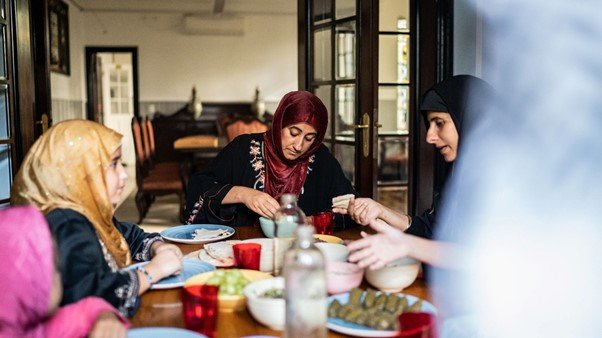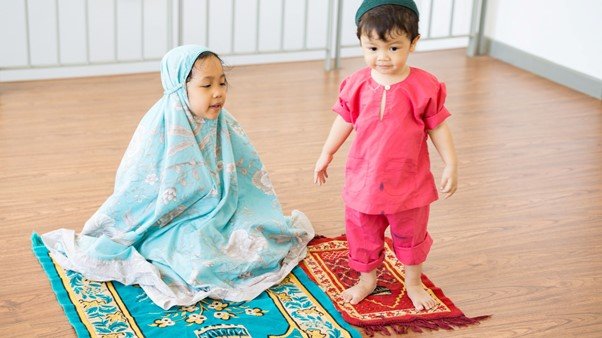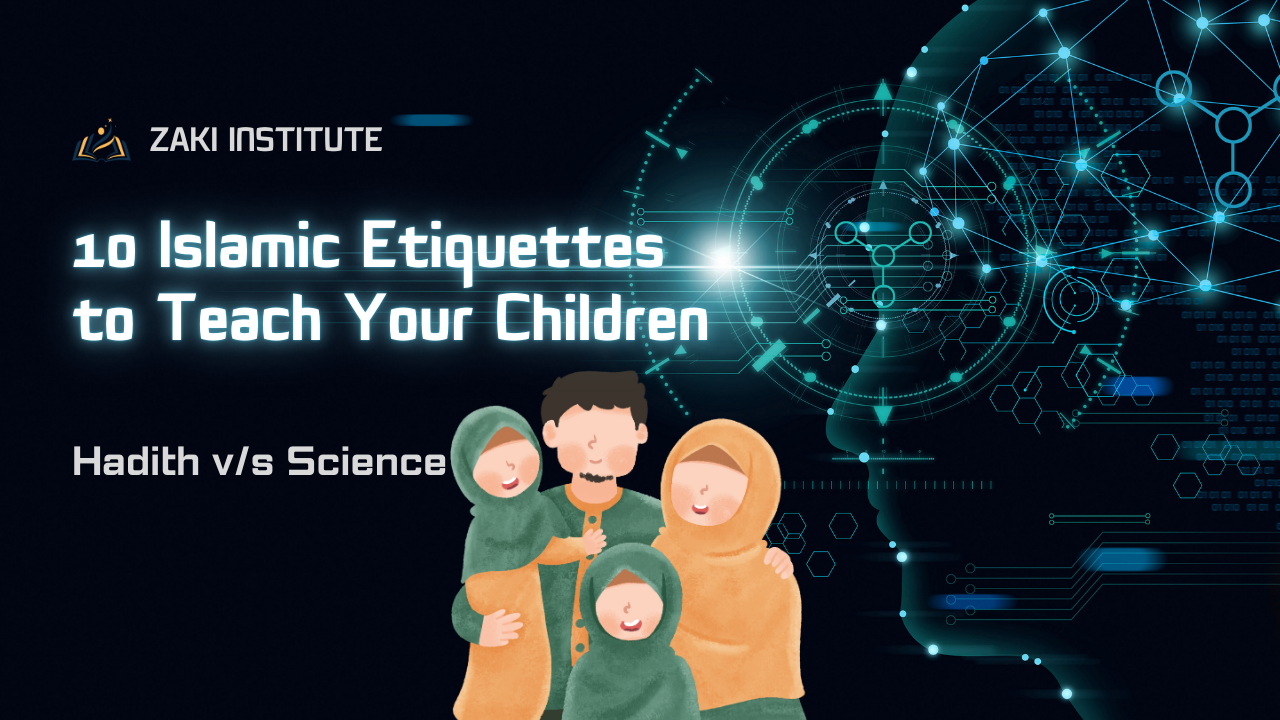Teaching children good manners and etiquettes is a fundamental part of Islamic upbringing. These etiquettes not only align with Islamic teachings but also promote positive behavior that benefits children in the long run. Here are ten key Islamic etiquettes to teach your children, along with references to relevant Hadith and some scientific insights on their long-term benefits.
1. Greeting with Salaam
Teach children to greet others with “As-Salaamu Alaikum” (Peace be upon you). The Prophet Muhammad (PBUH) said, “You will not enter Paradise until you believe, and you will not believe until you love one another. Shall I tell you about something which, if you do it, will make you love one another? Spread salaam amongst yourselves” (Sahih Muslim).
Long-term Benefit: Greeting others warmly fosters social connections and reduces feelings of loneliness. Studies show that positive social interactions are linked to better mental health and increased longevity.
2. Respecting Parents
Children should be taught to respect and obey their parents. The Quran says, “And your Lord has decreed that you not worship except Him, and to parents, good treatment” (Quran 17:23).
Long-term Benefit: Respecting authority figures and developing strong family bonds contribute to emotional stability and social competence. Research indicates that supportive family relationships are crucial for psychological well-being.

3. Being Honest
Honesty is a core value in Islam. The Prophet Muhammad (PBUH) said, “Truthfulness leads to righteousness, and righteousness leads to Paradise” (Sahih Bukhari).
Long-term Benefit: Honesty builds trust and credibility, essential components of healthy relationships. Psychologically, being truthful reduces stress and promotes a clear conscience.
4. Being Kind to Others
Kindness is highly valued in Islam. The Prophet (PBUH) said, “He who does not show mercy to others, will not be shown mercy” (Sahih Bukhari).
Long-term Benefit: Acts of kindness trigger the release of endorphins, promoting a sense of well-being and reducing anxiety. Kind behavior enhances social bonds and community ties.

5. Saying Bismillah
Teach children to say “Bismillah” (In the name of Allah) before starting any activity. The Prophet (PBUH) said, “If a person mentions the name of Allah upon entering his house or eating, Satan says to his followers: You will find no place to spend the night and no dinner” (Sahih Muslim).
Long-term Benefit: Starting tasks with a positive intention sets a focused and mindful tone. Mindfulness practices have been shown to improve concentration and reduce stress.

6. Thanking Allah
Encourage children to say “Alhamdulillah” (All praise is due to Allah) when they receive something good. The Prophet (PBUH) said, “The one who does not thank people, does not thank Allah” (Sunan Abu Dawood).
Long-term Benefit: Gratitude enhances emotional resilience and happiness. Research suggests that expressing gratitude can improve mental health and increase life satisfaction.

7. Sharing with Others
Sharing is an important part of Islamic teaching. The Prophet (PBUH) said, “The food of two people is sufficient for three, and the food of three people is sufficient for four” (Sahih Bukhari).
Long-term Benefit: Sharing fosters empathy and cooperation. Studies indicate that children who learn to share develop stronger social skills and are more likely to become compassionate adults.
8. Practicing Cleanliness
Cleanliness is part of faith in Islam. The Prophet (PBUH) said, “Cleanliness is half of faith” (Sahih Muslim).
Long-term Benefit: Good hygiene practices prevent illnesses and promote overall health. Clean environments also enhance mental clarity and well-being.
9. Avoiding Bad Language
Teach children to speak kindly and avoid bad language. The Prophet (PBUH) said, “The believer does not insult, curse, or speak in an obscene or foul manner” (At-Tirmidhi).
Long-term Benefit: Positive language fosters a respectful and supportive environment. Psychologically, it reduces conflict and promotes harmonious relationships.
10. Being Patient
Patience is a virtue in Islam. The Quran says, “Indeed, Allah is with the patient” (Quran 2:153).
Long-term Benefit: Patience helps in managing stress and frustration. Scientific studies show that patient individuals tend to experience better mental health and greater life satisfaction.
Conclusion: Teaching these etiquettes helps children grow into respectful and mindful individuals. By incorporating these manners into daily practice, children can grow into respectful, kind, and emotionally resilient individuals who contribute positively to the society.
At Zaki Institute, we provide one-on-one online classes for kids and adults to impart Quranic knowledge and Islamic values. Our personalized approach ensures each student learns at their own pace in a supportive environment. Enroll today to give your child a strong foundation in Quranic Knowledge and Islamic teachings.

